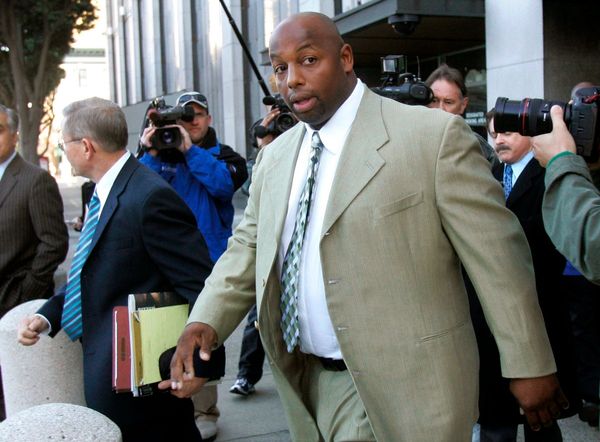
As 2024 drifts to a close and we reflect on its many disappointments and outrages, it’s equally important to remember figures who offered, sometimes imperfectly, a genuine alternative to the general sense of degradation in public life.
Kate McClymont
The career of Alan Jones was, for decades, characterised by the fear he inspired. Quite apart from the allegations of sexual misconduct he currently faces, Jones’ seeming impunity when it came to inflammatory rhetoric and relentless bullying of public figures was born of the explicit fear subduing anyone who might speak out against him.
For that reason alone, McClymont’s typically fearless revelations of serious allegations against Jones deserve the highest credit.
Fatima Payman
The former Labor senator has not always shown exemplary judgement in the past year. But being one of the only members of a major party to talk directly and clearly about what has happened in Gaza, as she did in June, is enough on its own to get her on this list.
For an illustration of the courage and principle that stance took, look no further than the weeks that followed, where her colleagues, anonymously and with the help of powerful media figures, slowly isolated and discredited her until her departure from the party was inevitable.
Vincent Namatjira
Possibly no-one brought more cheer to Australian public life than the Archibald-winning artist Vincent Namatjira, though he didn’t go out of his way to do it. He simply held his ground — with the support of the National Gallery of Australia where his work was displayed — when mining heiress Gina Rinehart demanded that his less-than-flattering portrait of her be “disposed of”.
In doing so, he provided us with a much-needed, and in the best sense, deeply Australian joy — for the first time in what feels like a long time, a certain unaffected irreverence won the day.
Arisa Trew
It doesn’t always have to be a grandiose achievement that gets one a nod for Person of the Year. Sometimes it can just be doing something rad. Arisa Trew, who broke the record for the youngest Australian Olympic medallist in history when she won gold in the Paris Games’ women’s skateboarding event at the age of 14 years and 86 days, easily qualifies on that criteria.
Damien Guerot, Amy Scott, Muhammed Taha and Faraz Tahir
In the face of the senseless horror of the Bondi junction attack came a series of truly heroic reactions. There was French construction worker Damien Guerot, who confronted the killer with a bollard, preventing him from ascending to another floor, and police officer Amy Scott, who shot and killed the attacker, both of whom almost certainly saved many lives and were rightly praised for their courage.
Belatedly, this praise was extended to Faraz Tahir, who was killed that day during his first-day shift as a security guard, and his surviving colleague Muhammad Taha who was stabbed trying to protect him.
Jennifer Robinson
When WikiLeaks founder Julian Assange returned to Australia in July after 14 years in exile (most of it in prison), it was vindication for many people; his family, his wife Stella, and many other tireless advocates. But none more so than human rights lawyer Jennifer Robinson, Assange’s long-time legal adviser who pushed for his release through years of government indifference and seeming hopelessness.
“For so long, people claimed it would be impossible, that he’d spend the rest of his life in a US prison,” she told Marie Clare. “Seeing him home with his family in Australia fills me with joy — it’s perhaps the most satisfying outcome of my career so far.”







